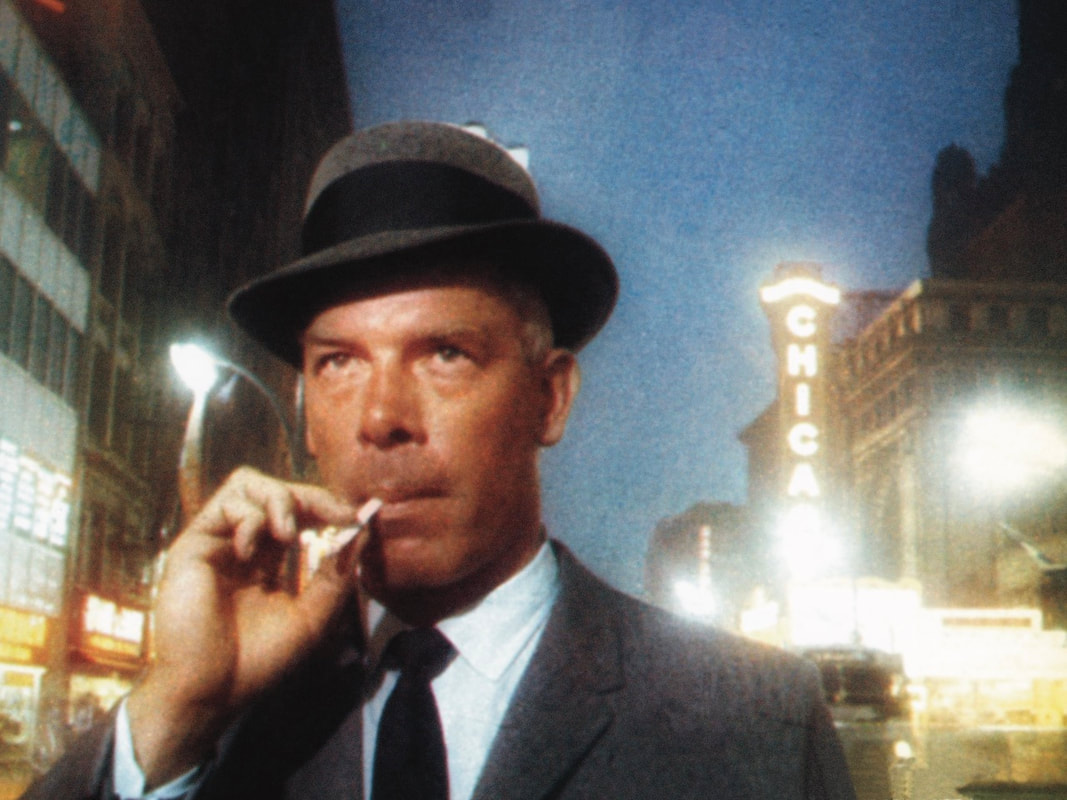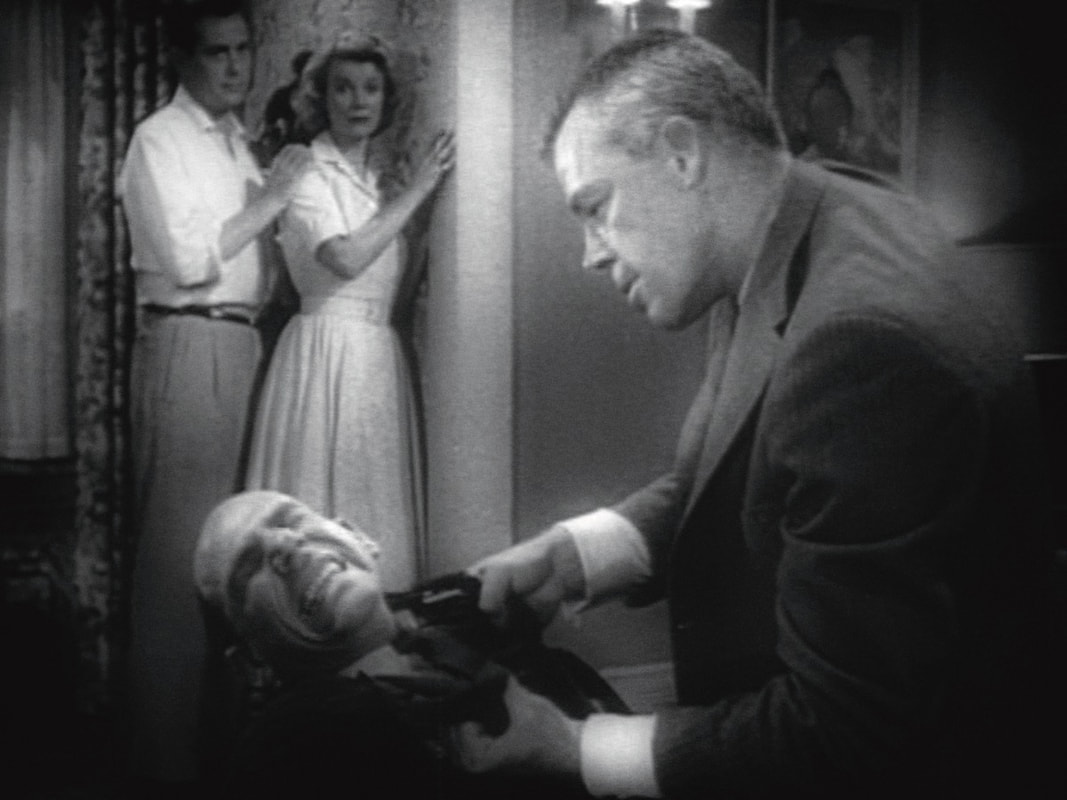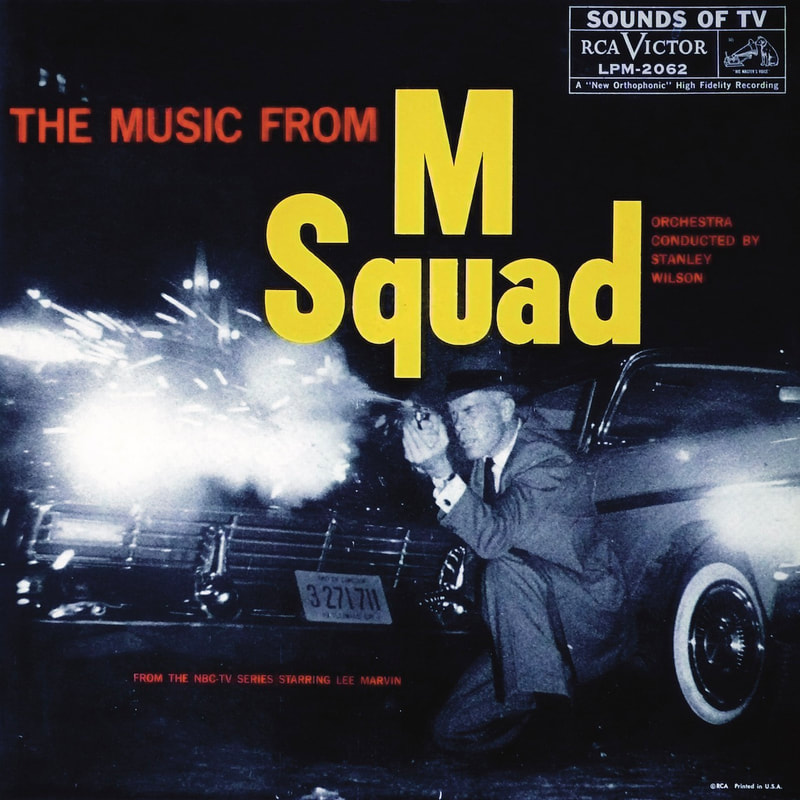TV Noir |
A CLASSIC CYCLE
|
M Squad |
NBC 1957–1960
|
“Ballinger is my kind of man. His own guy. No broads, no mother, no sleep, no eat, just a dumb, fair cop.”
✦ LEE MARVIN
✦ LEE MARVIN
|
Whether cast as cop or crook, Lee Marvin radiated a certain violence. His malevolent screen presence, avidly exploited in scores of films noirs, is brought to no less a menacing simmer in M Squad, in which he plays Frank Ballinger, a lieutenant with the Chicago police. Ballinger is a workaday cop, hard-nosed and uncomplicated. The crimes he tackles are of the pulp-noir breed: dope peddling, hijacking, bank robbing, kidnapping, swindling, forgery, and innumerable instances of foul play. At his desk, Ballinger is restless; his frame does not fit in his chair and his feet instinctively point toward the door that leads out to the street where the criminals run free. Even in the field, his lithe torso, gangly limbs, and oversized piscine head conspire to create an orchestration of ominous intent. When Ballinger springs to action, the release of pent-up rage is fierce. Jack Webb may have established the archetype of the television cop with his diligent automaton Joe Friday, but it was Marvin’s Ballinger who shaped him into a ferocious and virile bull—a proactive defender of urban sanctity. Pushed along by a driving jazz score from Count Basie and Stanley Wilson, each M Squad comes to its point quickly, underlines the conflict between criminal chaos and societal order, then follows Ballinger as he races through the noir city to the moment at which guns are drawn and bad men fall. The sparse expository style of Dragnet is recalled, only here it serves to cut corners of time and space by moving the often convoluted story swiftly along to an ear-splitting conclusion. Where Webb, intent on presenting Friday as the emblem of police efficiency, sought verisimilitude, Marvin (who also produced the show) was after something else: the cocky aura of a Chicago cop. The ease with weapons, the gallows humor, the way of handling a snide suspect or a sobbing victim—he winnows all the behavioral patterns of a seasoned policeman into his “business,” as he was known to call his method of shaping a character. For Marvin, the role of Ballinger marked a breach in a run of alarmingly mean bullies. The dark proclivities that once led Bosley Crowther to describe him as “the number one sadist of the screen” are vividly demonstrated in his earliest studio picture, The Big Heat (1953). Leering and loose-jointed as the gangster Vince Stone, Marvin induces queasiness from the moment he steps into frame. Halfway through, when he throws a pitcher of scalding coffee at Gloria Grahame’s face, it’s a supreme act of finality startling in its viciousness but not at all surprising in context. The scene introduced a new threshold for screen violence, one which Marvin would persist in toeing, whether as the psychopathic leader of a motorcycle gang in The Wild One (1953), the sinister head of a communist spy ring in Shack Out on 101 (1955), or the benzedrine-snorting thief in Violent Saturday (1955). Of Marvin’s small-town lout in Bad Day at Black Rock (1955), the film critic for Colliers wrote, “By the time he gets his head bashed in you hate him so much that you could supply a supererogatory kick in the face.” Marvin’s film noir heavies tend to live in the moment, displaying both an urgent predatory need and the crude means of satisfying it. “That kisser in itself—it’s a great face,” explained Don Weiss, who directed Marvin through multiple installments of M Squad. “But the rest is entirely physical. He’s got a system. The way he walks, the way he talks, the way he slings a gun—it’s all in the crotch with Lee.” Where Friday’s aptitude as an investigator resides in his ears and mouth, in the rigorous question-and-answer sessions by which he brings crook to book, Ballinger’s method of policing entails a far more physical game involving a sturdy pair of rubber-soled shoes, a familiarity with the city’s malfeasant geography, and an unholstered Smith & Wesson. The rule of Ballinger’s gun is absolute; free of anguish or neurosis, this lawman prevails at any cost. |
Promotional still for M Squad (1959) with Lee Marvin.
The Executioner (M Squad, 1958).
The Music from M Squad (RCA-Victor, 1959).
|
Abridged from TV NOIR by Allen Glover. Published by Abrams Press. All rights reserved.


